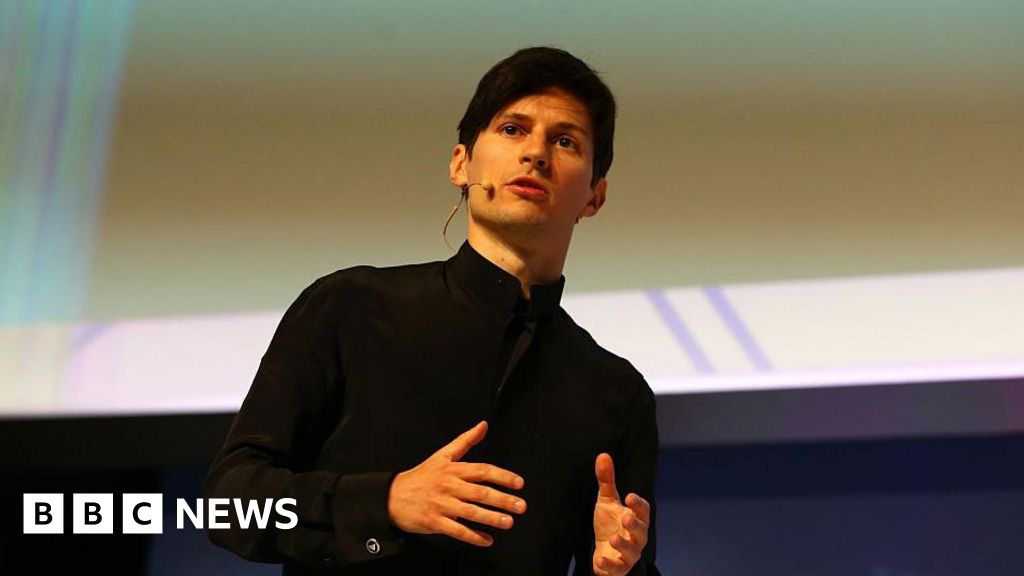Pavel Durov, Russian-born billionaire founder of Telegram messaging app Arrested on landing in Paris on Saturday nightthere was more speculation than substance about his fate.
A headline from a Russian newspaper summed up the event: “The arrest (or detention) of Pavel Durov, the ‘Russian Zuckerberg,’ is one of the most important yet mysterious global news stories,” declared the Nezavisimaya Gazeta.
real.
Just to say “mysterious” is a bit of an understatement.
Why did French police detain him? What charges will he face? Does this have anything to do with his recent visit to Azerbaijan and meeting (or not meeting) Russian President Vladimir Putin?
For two days, journalists have been citing “sources close to the investigation” about the possible crimes for which Pavel Durov could be charged (allegedly, ranging from drug trafficking conspiracy to fraud). Telegram issued a statement saying Durov had “nothing to hide.”
On Monday night, the Paris prosecutor said in a statement that Mr. Durov was detained in connection with a cybercrime investigation.
The statement mentioned 12 different crimes being investigated and said they were linked to organized crime.
Prosecutors said these included illegal transactions, child pornography, fraud and refusal to disclose information to authorities.
Mr Durov’s detention has been extended and may now last until Wednesday, the statement added.
President Emmanuel Macron posted on social media that he had seen “disinformation” about France after Durov’s arrest, but gave no details, adding: “This is in no way a political decision.
In Moscow, the Kremlin is cautious.
“We still don’t know what exactly Durov is accused of,” Kremlin spokesman Dmitry Peskov told reporters on Monday, commenting for the first time on Pavel Durov’s detention.
“We haven’t heard any official statement. Before I say anything about it, we need to clarify a few things.
Not every Russian thinks clarification is needed.
State television’s flagship political talk show had a lot to say about the matter on Monday.
“All these accusations against Durov sound ridiculous,” declared a political analyst at the studio. “Accusing him of all the crimes he committed on his platform is like accusing [France’s] President Macron expresses his displeasure with all the crimes taking place in France. It’s the same logic.
Russian newspapers also picked up the story. Several newspapers feared that Pavel Durov’s arrest could have serious consequences for Russia.
“This blow to Telegram may also be a blow to Russia,” Nezavisimaya Gazeta wrote. “With the arrest of Pavel Durov, Western intelligence services have access to the messenger’s encryption keys.”
“If Pavel Durov is forced to obey French intelligence, Telegram could become a tool of NATO,” the Moscow Komsomolets member declared. “Telegram chats contain a large amount of vital strategic information,” he added.
In April 2018, Russian authorities began blocking Telegram, and the ban was not lifted until 2020. Operation” (Russian War in Ukraine).
“If Telegram crashes,” a member of the Moscow Komsomol asked today, ” [our army] Want to fight?
In the West, Pavel Durov’s detention sparked a debate over free speech.
In Russia, the presidential human rights ombudsman Tatyana Moskova also claimed that “the real reason for the arrest of Pavel Durov is to shut down Telegram, a platform where one can discover the truth about what is happening in the world. Everyone who fights for freedom of speech People protested against this.
Ms Moskalkova did not mention the Signal messaging app, which Russian authorities blocked access to earlier this month, or YouTube, which currently has severely restricted access in Russia. Facebook and Instagram are already blocked here.
What about the rumors of a meeting between Putin and Durov in Baku in early August? Is there any?
When I asked, Kremlin spokesman Dmitry Peskov responded: “No.”
Whatever the outcome of this mysterious story, Moscow will use it to reinforce one of its official narratives: Russian citizens should be wary of the West.
As the popular tabloid Komsomolskaya Pravda put it: “For the West, there is no such thing as a ‘good Russian’ anymore.”

